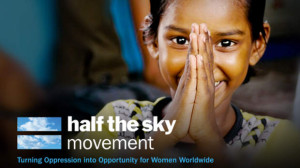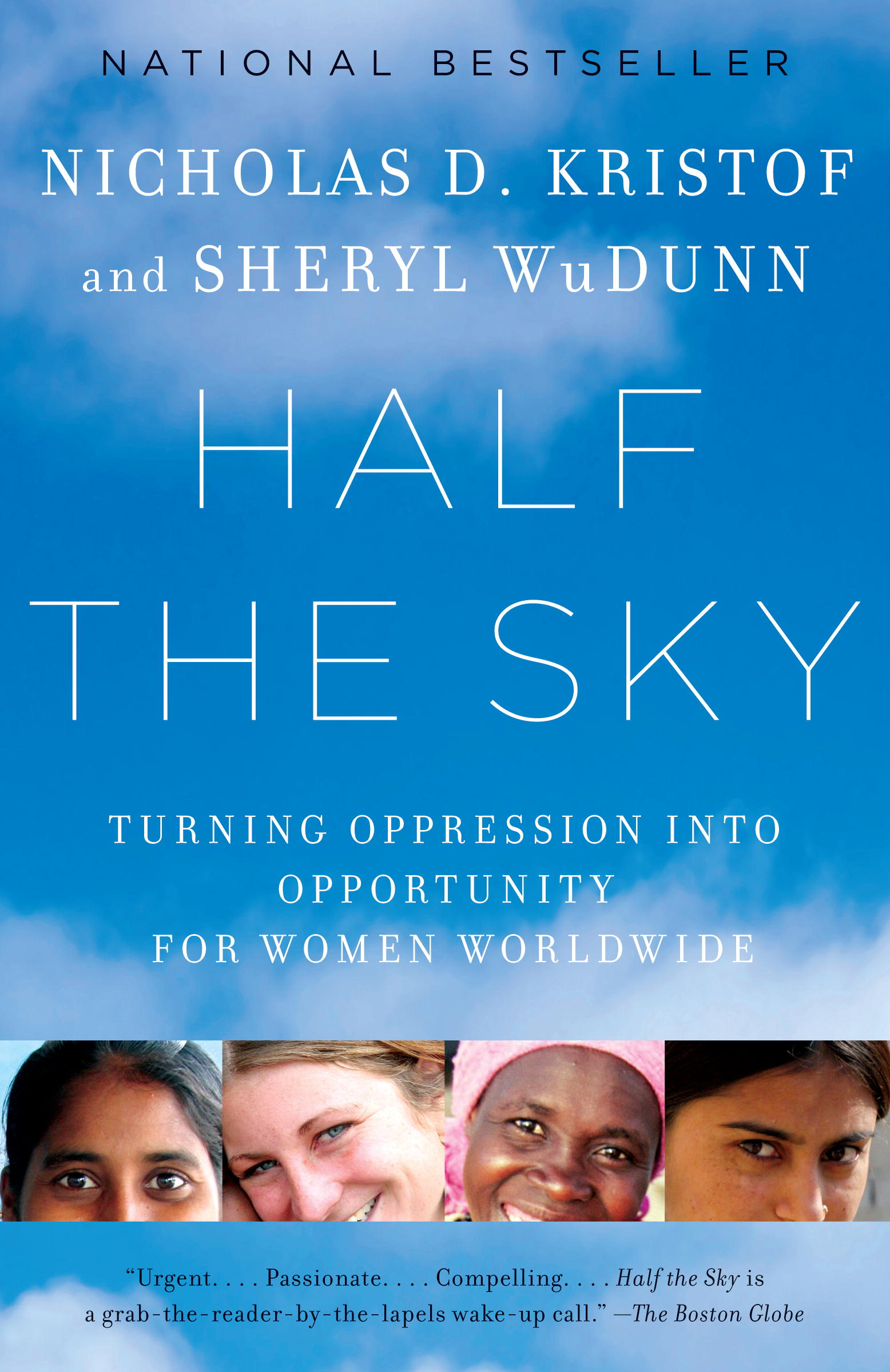 I FINALLY have a private screening for Half the Sky: Turning Oppression into Opportunity for Women Worldwide scheduled for this weekend. Granted, it's only a partial screening of the economic empowerment section, but it's a chance to educate people and to engage them in discussion and action on a very critical women's rights issue.
I wouldn't be able to do this without the help of the St. Louis chapter of the Young Ambassadors for Opportunity. They're an organization that promotes micro-lending and insurance for small business owners in developing countries. Partnerships are critical to being a good Half the Sky Ambassador or in any other activism and non-profit work. However, much more than partnerships are needed to effect change for women around the world or in any other issue. Here's a few things I could do to accomplish more and to be a better ambassador for women's rights and equality:
I FINALLY have a private screening for Half the Sky: Turning Oppression into Opportunity for Women Worldwide scheduled for this weekend. Granted, it's only a partial screening of the economic empowerment section, but it's a chance to educate people and to engage them in discussion and action on a very critical women's rights issue.
I wouldn't be able to do this without the help of the St. Louis chapter of the Young Ambassadors for Opportunity. They're an organization that promotes micro-lending and insurance for small business owners in developing countries. Partnerships are critical to being a good Half the Sky Ambassador or in any other activism and non-profit work. However, much more than partnerships are needed to effect change for women around the world or in any other issue. Here's a few things I could do to accomplish more and to be a better ambassador for women's rights and equality:
Write More Articles on the Subject
Writing is one of my best and biggest assets and one that I need to leverage more in my ambassadorship. I haven't written any articles yet on the issues, at least not as a Half the Sky Ambassador, and I certainly have the ability to do so. Outlets such as International Political Forum, Daily Globe, my personal blog, Technorati, and the Amnesty St. Louis blog are all perfect places to cover the many issues addressed in the book and film and to encourage action. I just need to make the time to do the necessary research, to come up with good topics, to pitch the articles, and to get them done. Easier said than done, sure, but I can do it. What I should do is connect these issues with current events where possible, bringing attention to them because there's demand to learn about the current event while offering a different angle to these stories that hasn't been covered before.
Work on That Fundraiser
After the St. Louis Amnesty International chapter read the book and watched the film, we were inspired to do something. Women's rights are human rights and many of the issues portrayed in both are issues that Amnesty is also working on. Our plan was to have a fundraiser and raise money for one of the organizations in the film. However, as an Amnesty International chapter, we learned that we couldn't raise funds for anyone other than Amnesty International. It's part of the organization's rules. So, we couldn't do the fundraiser under the organization's name, although our group leader offered the opportunity for someone to take the reins and to manage the project on their own.
This is something that I should work on and plan a fundraiser for April or May when the weather is nicer and people aren't hung over from the holidays and all that spending. I think it would be fun to do a silent auction/trivia night, where it's a cheap entry fee of $5 but most of the fundraising money come from purchasing entries for the silent auction. The hard part will then be getting enough prizes for the silent auction and getting prizes that are good enough to auction off. But, I think if I start now and plan for an April or May event, it could be a really awesome fundraiser and something that I could at least get the Amnesty International group to attend or to set up a table to collect signatures.
Make Time for Strategy
The main reason why I'm not all that good an ambassador is because I don't make time for it. I just hope that I have time for it eventually, somewhere during the day. But, I never do because the time always goes toward things that I make time for, which is usually work stuff and video games. I think what I should do is plan for one screening for one-half of the documentary while preparing for this really awesome fundraiser.


